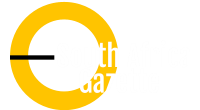A scholar, Mr Namse Udosen has called on the federal and state governments to develop a Literacy Development Plan to effectively address the learning poverty in the country.
Udosen, a master’s student of international education and development, University of Sussex, Brighton, UK, made the call in a telephone interview with the News Agency of Nigerian on Friday.
He argued that Nigeria and its federating states have been struggling with literacy development for years without success, due to lack of concrete plan to address the challenge in primary schools.
He said that so far, no state in Nigeria has a literacy development plan, stressing the need for government at all levels to develop the plan to improve learning outcomes in basic schools.
According to him, the plan, if developed, will guide primary education delivery system, and ensure that the right human and material resources are deployed to improve reading instructions.
‘It will also assist in improving literacy rates by effectively utilising metho
dologies based on acceptably defined knowledge parameters and empirical processes.
‘The literacy development plan policy will equally serve as a valuable resource for designing in-service teacher training.’
He also stressed the need to align literacy goals in the Universal Basic Education Policy with pedagogy, teacher training, learning resources, school plants and local cultures at the state level in Nigeria.
He said that the national and states’ Policy on Education were designed to inculcate literacy, numeracy, and effective communication skills in pupils, but lacked the needed quantitative indicators that align with the policy objectives.
Udosen said that the current National Policy on Basic Education and the State Basic Education Policies needed to be more specific about teaching aids and other instructional materials design and development.
According to him, basic education teachers can only develop pupils’ reading and critical thinking skills effectively, if they understand the constructs associate
d with literacy instruction.
He also urged education planners in the country to work with language experts to develop orthographies of different languages to guide curriculum design.
‘Literacy assessment tools should also be designed in different languages for different basic education levels.
‘This will help measure the achievement of set targets, guide instruction, and provide remediation for students with divergent learning abilities.
‘The governments should also create supplementary materials with local stories and cultural references that align with the national curriculum and provide high-quality teaching materials for all,’ he said.
The scholar also stressed the need to collect data on student learning outcomes, teacher implementation, and programme costs to monitor literacy improvement.
Source: News Agency of Nigeria
